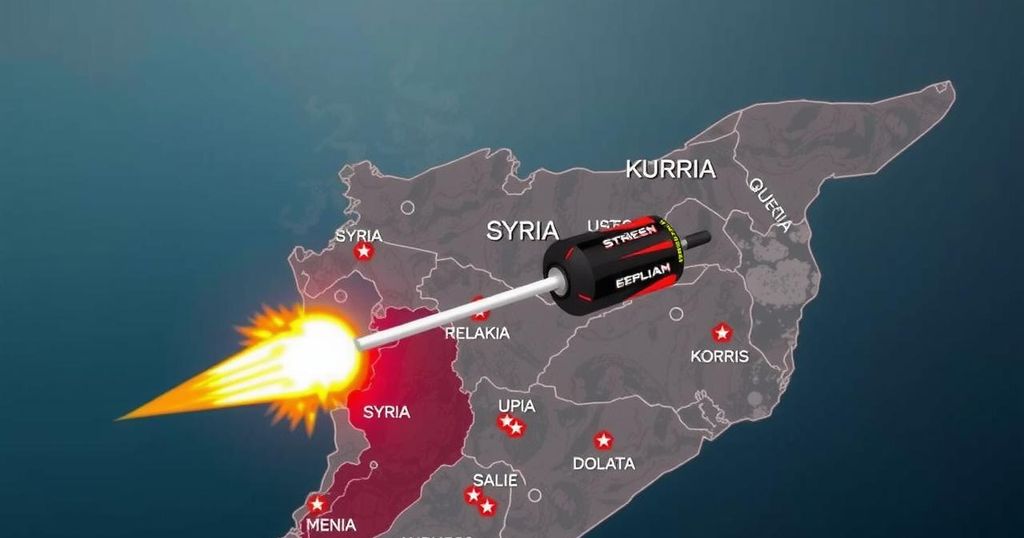Turkey’s Airstrikes in Kurdish Regions Amidst Escalating Tensions and Peace Talks

Turkey executed airstrikes in Kurdish areas of Syria and Iraq following a deadly attack on a government defense facility in Ankara, killing 12 and wounding 25, according to U.S.-allied Kurdish forces. The strikes have drawn strong condemnation from the Syrian Democratic Forces, who claim civilian targets were hit, amidst a backdrop of potential peace talks with the imprisoned PKK leader.
In a significant escalation of violence, Turkish airstrikes targeted Kurdish positions in both Syria and Iraq late Wednesday, resulting in the deaths of 12 individuals, including two children, while wounding 25 others. This military response was initiated in the wake of a tragic attack that occurred at the Turkish Aerospace Industries headquarters, which left four civilians dead and more than a dozen injured. The Turkish government has attributed this assault to the Kurdistan Workers’ Party (PKK), a group that it has long designated as a terrorist organization. President Recep Tayyip Erdogan condemned the attack, labeling it as a ‘nefarious’ act against Turkey. This incident coincides with ongoing discussions between the Turkish authorities and Abdullah Ocalan, the imprisoned leader of the PKK, raising questions about potential peace negotiations amidst heightened discord. The Syrian Democratic Forces (SDF), a coalition of Kurdish forces that have been essential allies of the United States in the fight against the Islamic State (ISIS), criticized the Turkish airstrikes. General Mazlum Abdi, a commander of the SDF, described the strikes as indiscriminate, emphasizing damage inflicted on civilian infrastructures such as health facilities in the region. As this situation unfolds, approximately 900 U.S. personnel remain stationed in northern Syria as part of the coalition aimed at countering ISIS, and the ongoing conflict underscores the complexities of U.S.-Turkish alliances and Kurdish relations in the region. Neither the U.S. Defense Department nor U.S. Central Command provided comments on the matter by Thursday morning.
The Kurdish group known as the Syrian Democratic Forces (SDF) plays a critical role in northeastern Syria as America’s key ally against ISIS. This collaboration complicates dynamics with Turkey, which views the SDF and its affiliated groups as extensions of the PKK – a militant organization responsible for a decades-long insurgency against the Turkish state. The PKK has been classified as a terrorist organization by Turkey and the United States, posing significant challenges to regional security and U.S. foreign policy. The current tensions are exacerbated by the Turkish government’s domestic political climate and its continued military actions against perceived threats along its border.
In conclusion, the Turkish airstrikes in response to the attack on a defense firm illustrate the ongoing tensions between Turkey and Kurdish forces in the region, raising concerns about civilian safety and the potential for escalation. The atmosphere of renewed dialogue between Turkey and the PKK leader offers a glimmer of hope for peace, yet the immediate consequences of the recent violence reflect enduring geopolitical complexities in the area. As international stakeholders, including the United States, navigate these developments, the implications for security and stability remain critical.
Original Source: www.cbsnews.com








